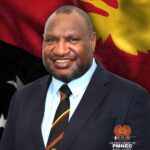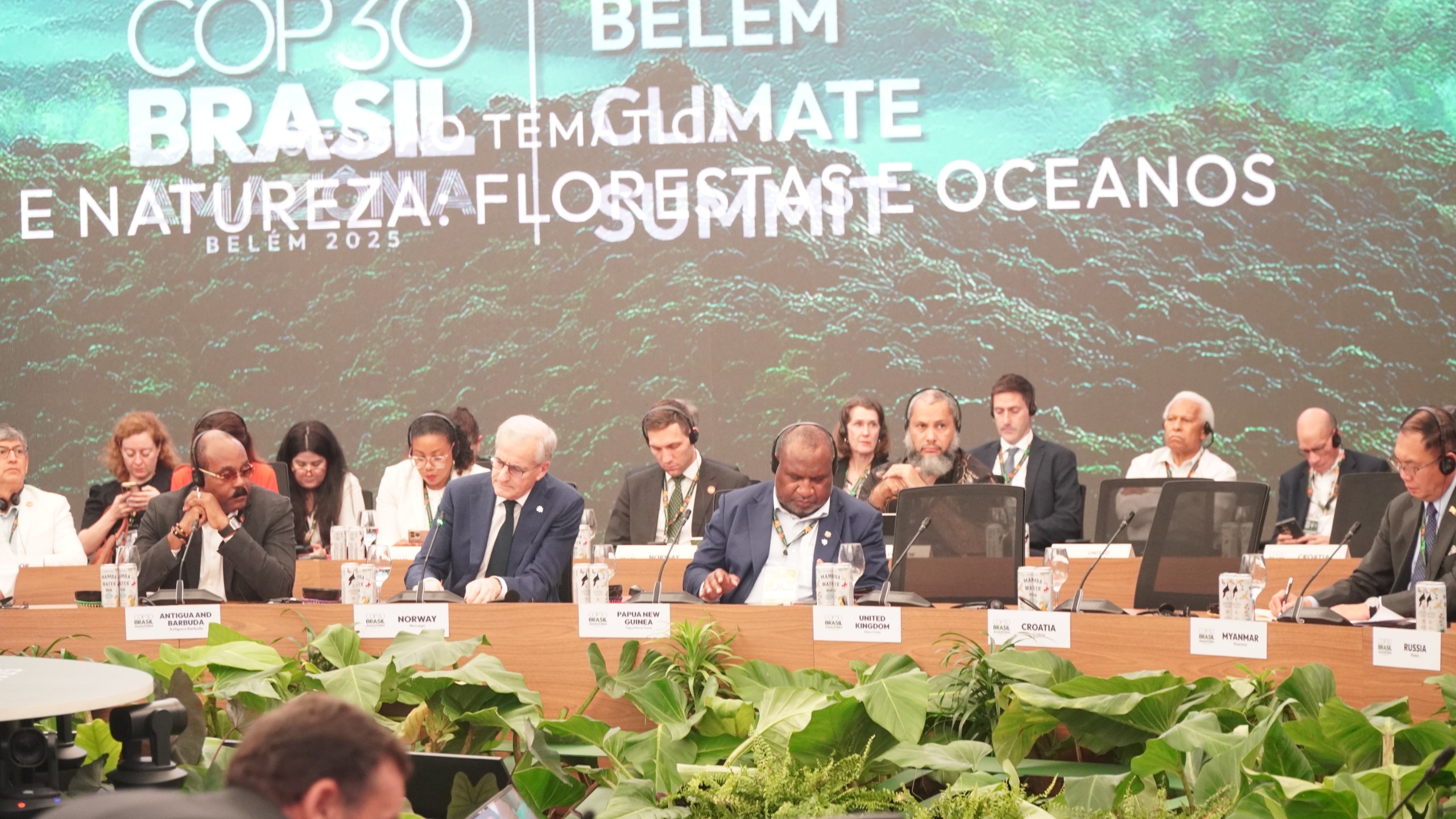Prime Minister Hon. James Marape has called on world leaders to embrace forests and oceans as the twin pillars of climate action, urging solidarity through nature-based solutions to tackle the global climate crisis.
Speaking at a thematic session on “Climate and Nature: Forests and Oceans” at the World Leaders Climate Action Summit at COP30 in Belém — at which Papua New Guinea was given prominence as a leading forests and oceans nation — Prime Minister Marape emphasised that Papua New Guinea, home to over 35 million hectares of tropical rainforest and vast marine resources, stands ready to contribute to global environmental preservation efforts.
“We must find solidarity in nature-based solutions to solve climate change,” Prime Minister Marape said. “Forests and oceans are our greatest allies — they preserve the air, regulate the climate, and sustain all life on Earth.”
The Prime Minister said the global community must not only protect but also harness the power of these natural ecosystems to drive sustainable development and carbon mitigation.
“Papua New Guinea remains committed to preserving its forests and ocean resources,” he said. “We have stepped up efforts to preserve our terrestrial and marine ecosystems as part of our contribution to the Paris Agreement and our shared planetary responsibility.”
Prime Minister Marape commended Brazil for its leadership in hosting COP30 and for championing forest-nation cooperation, noting that Papua New Guinea and Brazil share a common destiny as custodians of the world’s largest tropical forest systems.
“It is appropriate that we meet here in Belém — a city at the heart of the Amazon,” he said. “Under President Lula’s leadership, we have seen great progress, including a 50 per cent reduction in deforestation in Brazil. This is an inspiration for all forest nations.”
PM Marape concluded his address by calling on the private sector and global partners to step up investments in nature-based climate solutions and to view forests and oceans not as commodities, but as vital infrastructure for humanity’s survival.
“Let us unite around the forests and the oceans as two major solutions for a sustainable and liveable planet,” he said. “Together, we can preserve the air, the land, and the seas — the lifeblood of our shared Earth.”
Background: COP30’s Focus on Forests, Oceans, and Implementation
COP30 in Belém, Brazil, is featuring a significant focus on forests and oceans, recognising them as critical to climate action and nature-based solutions. Discussions include the Tropical Forest Forever Facility (TFFF) to finance forest conservation, strategies for protecting coastal and marine areas, and the broader need to shift from promises to implementation through scalable, equitable solutions.
Key Themes and Initiatives:
• Tropical Forests:A major focus is the launch and mobilisation of the Tropical Forest Forever Facility (TFFF), which proposes long-term, results-based financing for tropical forest conservation in countries like Brazil.
• Oceans: Discussions are elevating the ocean’s role in the climate agenda, acknowledging its cultural and social importance. Efforts are underway to design policies that support the health of the world’s oceans, including the 30×30 initiative to protect 30% of marine areas by 2030.
• Connecting Forests and Oceans:The integration of forests and oceans in the same climate discussions reflects the understanding that protecting nature is essential for achieving climate goals.
• From Promises to Action:A central goal of COP30 is to move beyond commitments to real-world implementation. This includes showcasing scalable actions, aligning solutions with a coherent process for tracking progress, and addressing structural inequalities through a just transition.
• Climate Finance: The conference is addressing the need for innovative and accessible climate finance, particularly for regions like Latin America, and is ex pected to produce outcomes like the Baku-Belém Roadmap to help reform the multilateral financial system.






